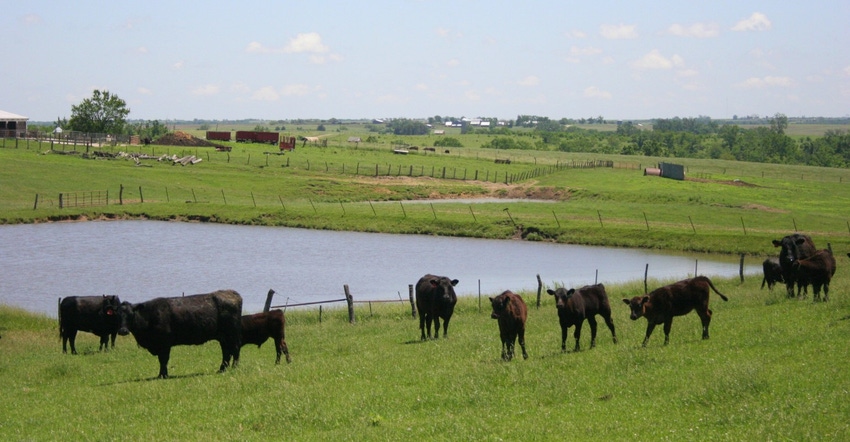
On June 6, the Kansas Livestock Association, an affiliate of the National Cattlemen’s Beef Association, hosted a Waters of the U.S. roundtable with representatives from the Environmental Protection Agency and Army Corps of Engineers. EPA and Corps officials heard first-hand the impact of EPA’s proposal to expand federal jurisdiction of waters as well as the impact of expanding ephemeral waters that in a state like Kansas may sometimes rarely be navigable. Those who shared their insight also reiterated that voluntary conservation actions could do more to advance improving impaired waters than greater regulation.
The conversations focused primarily on the challenges and opportunities of Kansas’ unique geographical area and hydrology. Roundtable participants included representatives from a variety of perspectives, including agriculture, conservation groups, developers, drinking water and wastewater managers, environmental organizations, groups in environmental justice and industrial organizations.
Aaron Popelka, KLA vice president of legal and government affairs, shared several different points with the regulators on expanding the reach of ephemeral water features and what kind of clarity is needed for agricultural producers.
Popelka says he’s heard some say EPA should regulate all ephemerals, and he says that’s just not true. “If the agency tried to regulate all ephemerals, it is chasing a tail for very little scientific impact,” he says of actually improving water quality on ephemerals that may not be flowing except for after a rain event.
Popelka adds, “We supported the Navigable Waters Protection Rule, particularly because it gave some bright, bright lines for our producers to decide, do I need to talk to EPA, or do I need to talk to the state regulatory agency.”
Shawn Tiffany, KLA president-elect and cattle producer, says he enjoys a great and honest relationship with local regulators who effectively protect water quality. “I am not opposed to regulation,” Tiffany says. However, he feels EPA’s jurisdiction should focus on interstate water bodies and rivers that cross state lines and federal reservoirs. States have already had success in dealing with local water features.
He says that he would rather see EPA’s budget used to provide continuity between state agencies who are the experts in their particular ecosystem and federal regulators. In addition, he says funds could help educate and encourage changes in practices at the farm level, whether it’s incentivizing the adoption of new management strategies or helping better explain the benefits of cover crops on water retention capabilities or erosion.
Ryan Goertzen-Regier, program and administrative manager at the Kansas Rural Water Center, says that more regulation of some of the water bodies could become even more difficult for EPA with wild swings in rain events. He suggests EPA could work with counterparts at USDA to push voluntary incentives to encourage more conservation efforts in the 2023 Farm Bill.
Tiffany says the confusion with WOTUS today is the definition. “It leads to potentially dangerous over-regulation and unnecessarily burdensome compliance needs for my operation and to many that are like mine.”
Dan Meyerhoff, executive director at the Kansas Association of Conservation Districts, adds, “If we increase regulations and make things more stringent, it’s going to hinder the voluntary conservation efforts that I think are very successful in here.”
Gary Mason, former deputy secretary for environment at the Kansas Department of Health and Environment, says that several ag exemptions including farm ponds and normal farming activities designated in the Trump era Navigable Waters Protection Rule should stay within the rule.
Mason also suggested that if EPA writes a rule now, finalizes it, and then the Supreme Court rules on the Sackette case, it could drag out uncertainty. I think we are better off waiting until the Sackett decision is made and then move forward with a final rule,” Mason says.
About the Author(s)
You May Also Like






